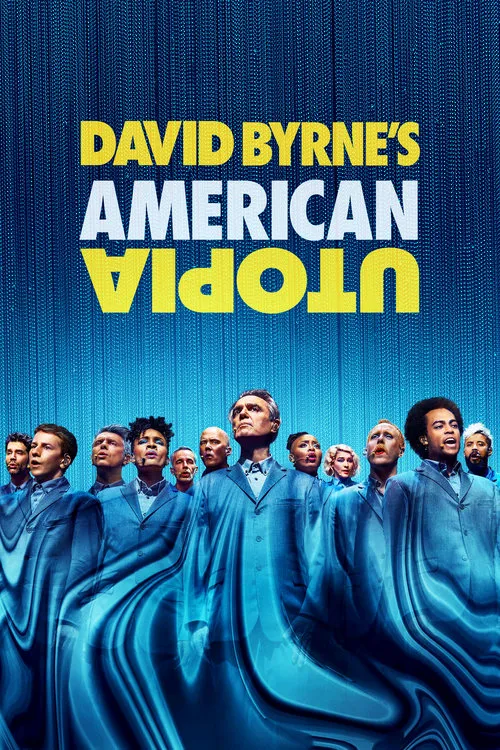David Byrne's American Utopia

Plot
David Byrne's American Utopia is a cinematic adaptation of the groundbreaking musical stage show created by iconic musician and Talking Heads frontman David Byrne. Released in 2020, the film captures the essence of Byrne's vision for a unified world, where music serves as a unifying force that bridges cultural and socio-economic divides. The movie is a documentary-style representation of the theatrical experience, shot in one seamless take, with a live audience and a dynamic ensemble of performers. As the curtain rises, David Byrne takes to the stage, armed with his trusty guitar, and launches into the opening number, "I Should Have Known," a poignant reflection on love, loss, and the passage of time. The set design is clever and functional, with a minimalist aesthetic that allows the performers to take center stage. The band, comprised of a talented group of musicians from around the world, is situated on a raised platform, facing the audience, creating an immersive and intimate experience. As the music begins to flow, the camera pans and weaves through the performers, capturing their energy and camaraderie. Throughout the film, Byrne draws on his extensive discography, performing classic hits like "Psycho Killer," "Once in a Lifetime," and "Burning Down the House." His performances are as electrifying as ever, with Byrne's signature wit, charm, and showmanship on full display. The band is equally impressive, with each musician contributing their unique perspective and style to the music. However, American Utopia is more than just a concert film; it's a powerful commentary on the state of the world. Byrne's lyrics often grapple with themes of unity, love, and acceptance, and he uses the show as a platform to promote social justice and human rights. In his signature deadpan style, he tackles topics like racism, xenophobia, and nationalism, urging the audience to engage with the issues of our time. One of the standout aspects of the film is its emphasis on community and connection. Throughout the performance, Byrne emphasizes the importance of human connection, encouraging the audience to engage with one another and with the performers on stage. He often breaks the fourth wall, speaking directly to the camera and acknowledging the audience's presence in the room. As the show builds towards its climax, Byrne leads the ensemble through a series of rousing anthems and meditations, including the mesmerizing "Lazy," which features a stunning dance routine, and the poignant "Once in a Lifetime," which serves as a powerful commentary on the fleeting nature of life and the search for meaning. One of the most striking aspects of American Utopia is its exploration of identity and belonging. Byrne, an adoptee, has spoken publicly about his complicated relationship with his heritage and his experiences as a biracial person. Throughout the film, he incorporates elements of world music, celebrating the diversity of cultures and traditions that make up the global community. The film's message is one of hope and unity, urging the audience to come together in the face of adversity and to celebrate the richness and diversity of human experience. As the curtain falls on the final note, Byrne's vision for a more inclusive and compassionate world feels more urgent than ever, and the film serves as a powerful reminder of the transformative power of music and art. In the end, David Byrne's American Utopia is more than just a concert film – it's a testament to the power of music to inspire, to uplift, and to bring people together. It's a celebration of the human spirit and a call to action, urging us to build a more just and equitable world, one song at a time.
Reviews
Recommendations




